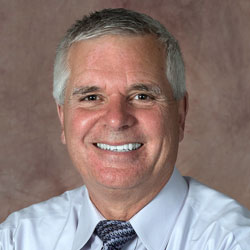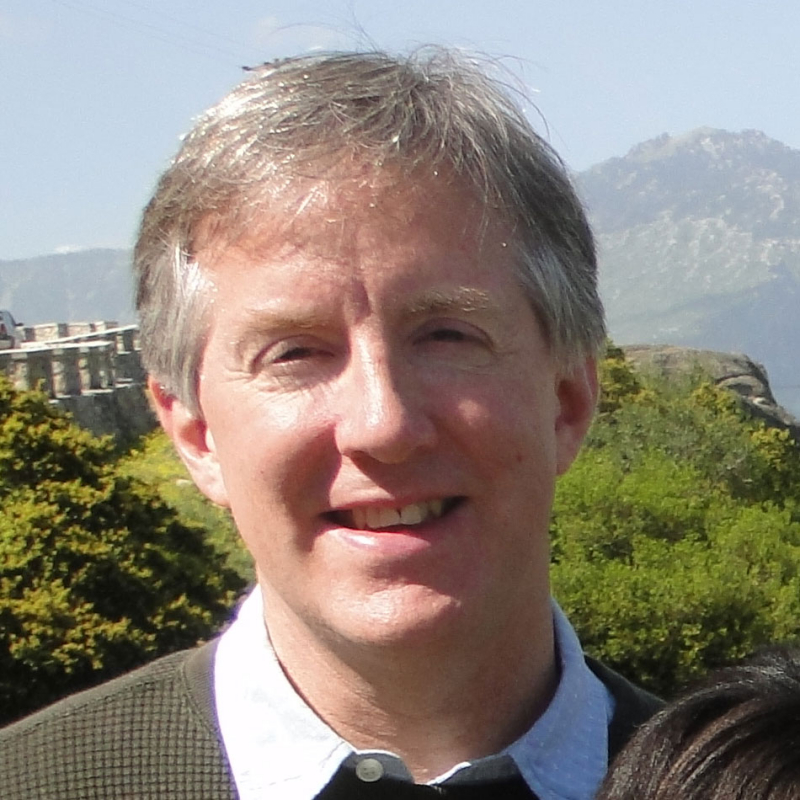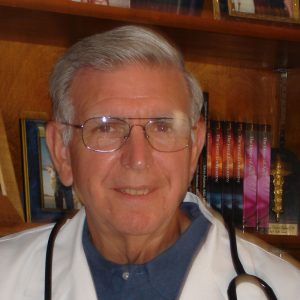
Randy Bivens, MD

Robert Hunsaker, MD

Elvin Adams, MD, MPH
“Can’t Your Priest Make It OK?”
The one thing that makes Seventh-day Adventists stand out from other religions and the world in general is keeping the seventh-day Sabbath. As anyone who has adhered to the Sabbath commandment knows, keeping it is not always easy. Many Adventists have faced, and continue to face, trouble for their obedience.
Here are three stories about three professionals, faithful Adventists all, who tangled with the world over keeping holy the day that God made special almost 6000 years ago (Genesis 2:3).
Principle, not Preference
By Randy Bivens, MD
I went through Loma Linda medical school on a Health Professional Scholarship Program with the Army. I had applied for a civilian Internal Medical residency, but the Army decided they wanted me at Brooke Army Medical Center in San Antonio, Texas.
Having never been outside an “Adventist bubble”, I was not sure what I would encounter. During the month between graduating and starting my internship, I learned that Grand Rounds would be on Sabbath morning from 9:30 to noon; attendance was required.
Here it was—my first encounter with my convictions. Is it going to be a ‘preference’ or a ‘principle’? Since it is medical training, would it be okay to attend? What should I do?
After much prayer and study, I made an appointment with the chairman of the Internal Medicine Department (a full colonel). I explained that, as a practicing Seventh-day Adventist, I could not in good conscience attend the Grand Rounds on Sabbath morning. He stated that he had never excused anyone. He asked if I was prepared to be kicked out of the program and possibly receive a court martial over the Sabbath.
The decision that I was about to make could alter the entire course of my life. Had all of my work up to this time been in vain? I told the colonel that I was willing to suffer any consequences he would feel appropriate, but I would not violate the worship of my Sabbath.
When he realized that this was not a preference but a final decision rooted in principle, he finally said, “Well, you are in luck.” The Army was planning on real-time transmitting via satellite the Grand Rounds to several regional Army hospitals and therefore would have videotapes. If I would view them during the week, he would excuse me for the duration of my training.
Three weeks into the training program, several other Loma Linda graduates heard that I had been excused, and they went to the same colonel and asked that they also be excused for the same reason. He asked them, “What have you been doing for the last three weeks?” They said, “Well, we have been going because we thought we had to go.” He said, “You do.” And they were never excused; for them, it was a preference.
What a blessing it was to be able to attend Sabbath School and church each week. I even had the support of the others in my barrack. If it was getting close to 9am on Sabbath, they would tell me that I needed to go to Sabbath School (they even knew the correct term). I praise God for His Sabbath and for honoring me during this trial.
An Intense Encounter
By Elvin Adams, MD
Seventh-day Adventist-based training was my only experience as a physician, until I applied to Johns Hopkins University. I sought to obtain an MPH degree at the Bloomberg School of Public Health. After I was notified of my acceptance, I was reminded by a colleague that Ruth White, RN, had just received her MPH degree from Johns Hopkins. I had heard that she had experienced considerable difficulty regarding Sabbath classes.
 A follow-up letter from me to the Admissions Committee about Sabbath issues brought the reassuring response that it was their “immediate opinion” that Sabbath observance would not be a problem. Acceptable arrangements could be made with the respective teachers.
A follow-up letter from me to the Admissions Committee about Sabbath issues brought the reassuring response that it was their “immediate opinion” that Sabbath observance would not be a problem. Acceptable arrangements could be made with the respective teachers.
The only two required courses were Biostatistics and Epidemiology, which were taught on a Tuesday, Thursday, and Saturday schedule. The chairman of each department taught these fundamental courses. The chairman of Biostatistics was cordial when I informed her that I was unable to attend on Saturday. She assured me that I could skip all Sabbath classes, and that she would assist me if there were any gaps in my knowledge.
The chairman of Epidemiology was a formidable world-famous figure in public health. When I brought up Saturday classes with him, he instantly became hostile and vocal. It was an intense encounter. He ranted that Seventh-day Adventists should become familiar with class schedules before they ever considered applying to Johns Hopkins, and that I should have applied to a different university.
At a pause in his tirade, I calmly produced the letter that I had received from the Admissions Committee and asked him to read it. He immediately calmed down, and then said that he would assign extra work for me to complete in order to cover the material that I would miss by not attending classes on Sabbath.
Since my episode, Seventh-day Adventists have never had a problem attending Johns Hopkins University. Seventh-day Adventists have served on the faculty of the School of Public Health and have also served as department heads.
My humble advice: When attending a secular university, don’t compromise your faith. And it is best to negotiate Sabbath issues during the acceptance process before attending classes.
“Can’t Your Priest Make It OK?”
By Robert Hunsaker, MD
I grew up as a typical Seventh-day Adventist young person: SDA education from first grade through college, camp meeting, youth camp, weeks of prayer twice a year, occasional evangelistic series at church, Pathfinders, and even family worship every morning. All that was great, but I didn’t know Jesus.
I had sincere and spiritually minded teachers, and a mother who loved the Lord and her children unreservedly; she also communicated God’s love and her love clearly. On the “rare” occasion I experienced corporal punishment, she was crying harder than me!
With all of those realities in place, how could I not know Jesus? How could I be blind to His deep and changeless love and faithfulness to me? Had it all been without avail for me and ultimately without eternal value?
With this background, I began receiving acceptances to medical school from the three schools that mattered the most to me – Loma Linda, UCLA, and UCSD. The UC schools were close to home (my family lived in San Diego) and had solid reputations and were affordable.
As I was processing this decision through my +12 diopter Laodicean glasses, UCLA and UCSD seemed like stellar options. So, I said to myself, let’s look at the course schedules.
UCSD was looking good. But there was class on Sabbath. It’s just “social medicine,” not really an important class like physiology or pathology. I’ll call the Dean’s office and see if I can take some other class, or just review notes and take tests at another time, or “CLEP” it, or have some other accommodation.
 After a fairly lengthy and respectful conversation with the school of medicine staff person (“We really want you to come to UCSD”), it became clear that there were no options for “social medicine” on Sabbath except attendance and participation.
After a fairly lengthy and respectful conversation with the school of medicine staff person (“We really want you to come to UCSD”), it became clear that there were no options for “social medicine” on Sabbath except attendance and participation.
Finally, after explaining my “convictions” as a Seventh-day Adventist again, the school of medicine representative asked me, “Can’t you talk to your priest and have him make it OK?” I paused, and then said, “No, sorry, it doesn’t quite work that way.”
I surprised myself a bit. Something from those 16 years of SDA education, and camp meetings, weeks of prayer, and Pathfinders, had stuck, and even impacted me enough to make the right decision. I didn’t love the Sabbath then; I didn’t enjoy it, either. And I still didn’t know Jesus. However, even as a lukewarm, legalistic, liberal, poor excuse for an SDA, I somehow had learned enough to make this right decision.
Although I see it clearly now in the retrospectoscope, God was using all that SDA “stuff” I’d grown up with to gently nudge me toward a place, Loma Linda, where He could engage me in a more direct and personal manner.
This was important because, of the few dozen friends from college who were pre-med with me, I’m not aware of any who went to medical school outside Loma Linda University who are active SDA Christians today. Their history would likely have been mine if not for the blessing and privilege of an SDA medical education.
The Sabbath issue and the choice to stand firm helped set the course for so much that is “right” in my life. Thank you, Jesus, for the Sabbath. I now love it, and I now love you too.
Throughout history God’s people have faced challenges and had to take a stand for him. Often, it’s not easy and the stakes are high. Although the stakes for these three doctors were not quite ‘life or death’ they remind me of the three Hebrews thrown into the fiery furnace. The principle revealed in these stories is the same: standing for God’s truth, regardless of the consequences, is always the right thing to do and will have eternal significance.
May each one of us be willing to take a stand for Him and one day hear Christ say, “Well done, good and faithful servant… Enter into the joy of your Lord.” – Matthew 25:23
<< | Table of Contents | >>
